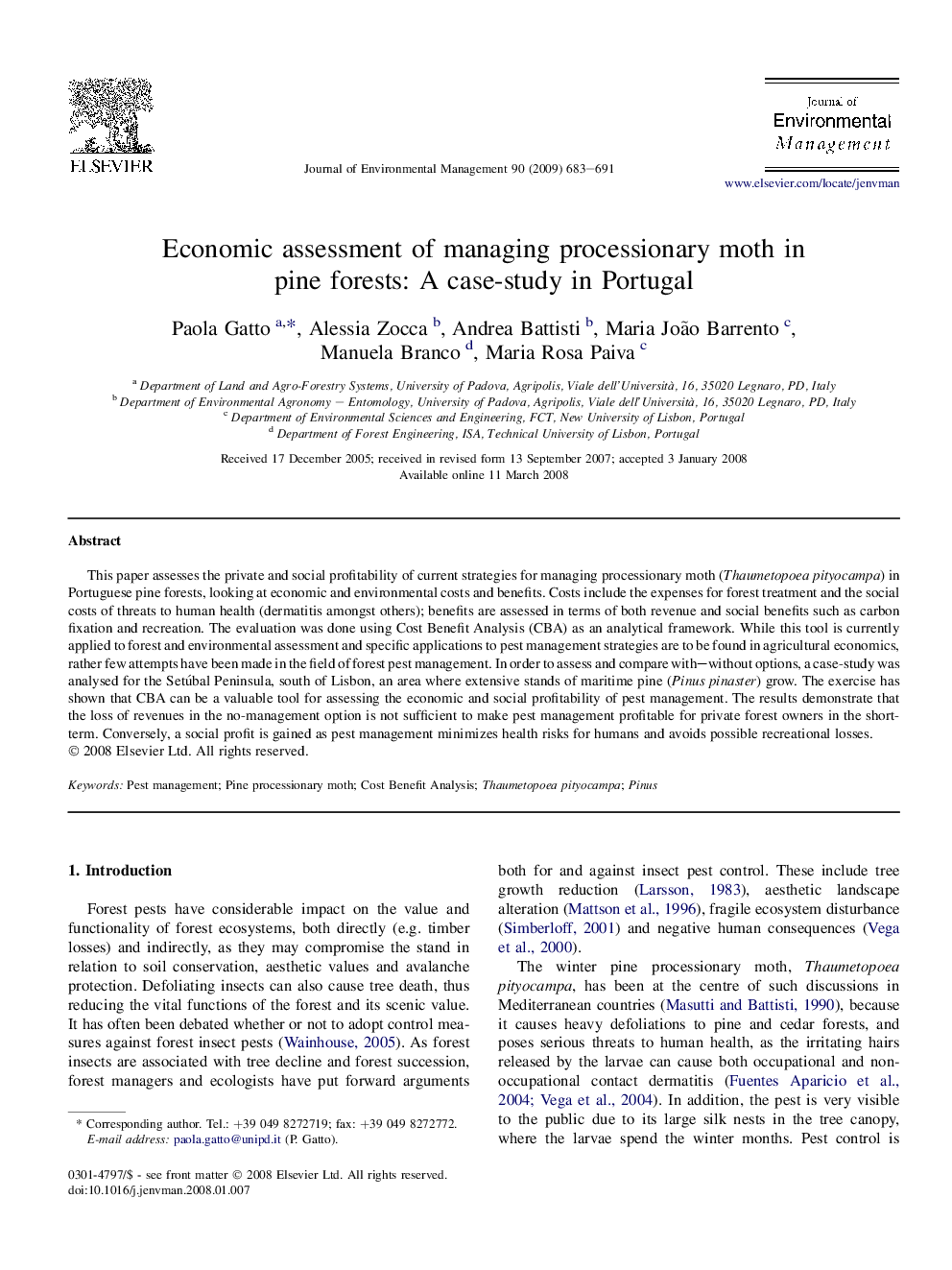| کد مقاله | کد نشریه | سال انتشار | مقاله انگلیسی | نسخه تمام متن |
|---|---|---|---|---|
| 1058407 | 947118 | 2009 | 9 صفحه PDF | دانلود رایگان |

This paper assesses the private and social profitability of current strategies for managing processionary moth (Thaumetopoea pityocampa) in Portuguese pine forests, looking at economic and environmental costs and benefits. Costs include the expenses for forest treatment and the social costs of threats to human health (dermatitis amongst others); benefits are assessed in terms of both revenue and social benefits such as carbon fixation and recreation. The evaluation was done using Cost Benefit Analysis (CBA) as an analytical framework. While this tool is currently applied to forest and environmental assessment and specific applications to pest management strategies are to be found in agricultural economics, rather few attempts have been made in the field of forest pest management. In order to assess and compare with–without options, a case-study was analysed for the Setúbal Peninsula, south of Lisbon, an area where extensive stands of maritime pine (Pinus pinaster) grow. The exercise has shown that CBA can be a valuable tool for assessing the economic and social profitability of pest management. The results demonstrate that the loss of revenues in the no-management option is not sufficient to make pest management profitable for private forest owners in the short-term. Conversely, a social profit is gained as pest management minimizes health risks for humans and avoids possible recreational losses.
Journal: Journal of Environmental Management - Volume 90, Issue 2, February 2009, Pages 683–691